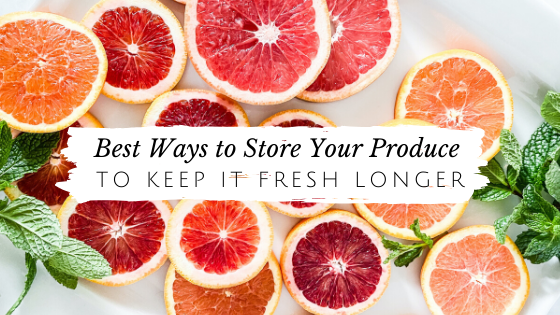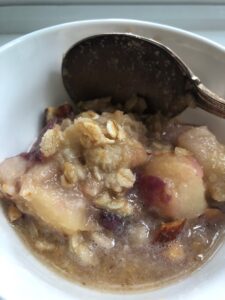
16 Jul Best Ways to Store Your Produce to Keep it Fresh Longer
While lockdowns have lifted over a good bit of the country, many of us are still sticking to a once-weekly trip to the supermarket or farmer’s market. We buy a big bounty, and then before we can eat it all, the bananas are browning. Yet, the grapes are still delicious and ready to eat.
Diverse fruits and vegetables have differing ripening processes. And, how you store them and which ones you put together can have a massive impact on how they ripen.
The Difference is Ethylene
Some fruits and vegetables produce a gas known as ethylene – which helps them ripen. And, certain produce is more sensitive to ethylene, which means it can overripen more quickly.
For certain fruits and vegetables, this natural phytohormone is normal for the ripening process. In others, which don’t produce it, it causes them to ripen too quickly. These fruits and veggies produce ethylene:
- Apples
- Bananas
- Avocados
- Cantaloupe
- Green Onions
- Kiwi
- Potatoes
- Tomatoes
- Pears
Interestingly, some ethylene-sensitive fruits and vegetables also produce it themselves – such as apples, bananas, avocados, cantaloupe, pears, and kiwis. For these items, you can ripen them on the counter, but when they get to that perfect ripeness, put them in the fridge. That’s how to save your avocados for sure!
Other ethylene-sensitive produce items are:
- Asparagus
- Broccoli
- Cucumbers
- Peaches
- Eggplant
- Grapes
- Lemons and limes
- Lettuce
- Onions
- Peppers
- Watermelon
- Sweet potatoes
Most ethylene-sensitive foods should go into the fridge, so they don’t ripen too quickly. If you want your bananas to go from green to yellow more quickly, you can put them in a paper bag. The same goes for that ultra-green avocado. The bag traps the gas and speeds up ripening. However, this is a short-term solution. Otherwise, you’ll wind up with overripe, mushy produce.
You can keep produce that isn’t ethylene-sensitive together on the counter. Pineapples, potatoes, garlic, cherries, and strawberries are just a few that will be fine in your fruit bowl to free up precious space inside the fridge.
Following these suggestions will keep your produce fresher for longer. This means less food waste and fewer trips to the store, both of which have a profound effect on the environment, and not to mention your health.
 Should you find yourself with overripe bananas. peaches or other fruits, there are many different ways to convert them into delicious goodies like banana bread, peach crisp, or fruit compote to make the most of your bounty! I had too many mushy peaches last week, so I made a simple gluten-free peach crisp. My husband and I loved it – and the girls enjoyed it. It’s comforting, yummy, and light on added sugar.
Should you find yourself with overripe bananas. peaches or other fruits, there are many different ways to convert them into delicious goodies like banana bread, peach crisp, or fruit compote to make the most of your bounty! I had too many mushy peaches last week, so I made a simple gluten-free peach crisp. My husband and I loved it – and the girls enjoyed it. It’s comforting, yummy, and light on added sugar.
To keep your summer gatherings from derailing your healthy eating habits, click here to get your copy of the free Simple Summer Sides Recipe guide.
Here’s to yummy summer goodness, using seasonal produce!




Sorry, the comment form is closed at this time.